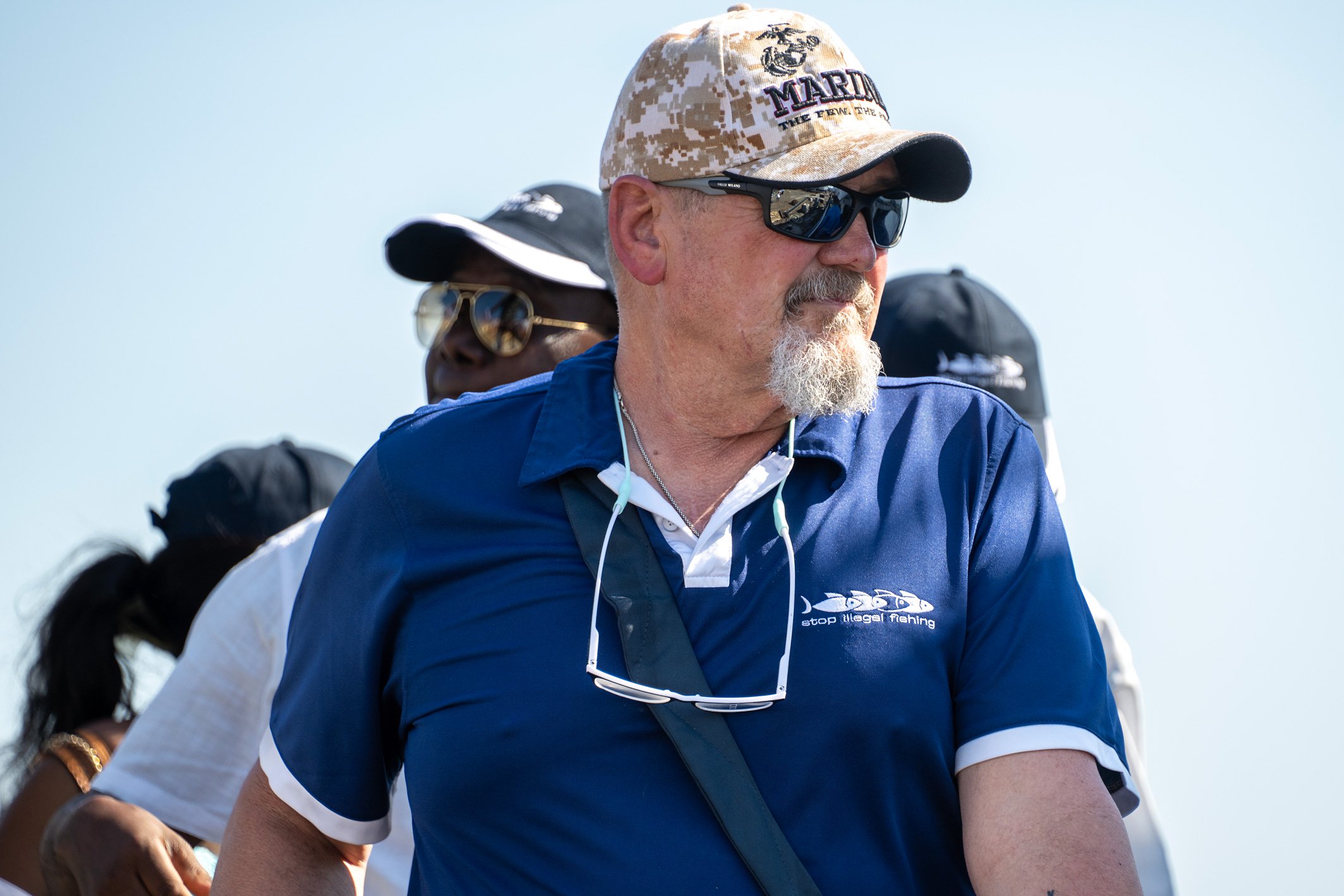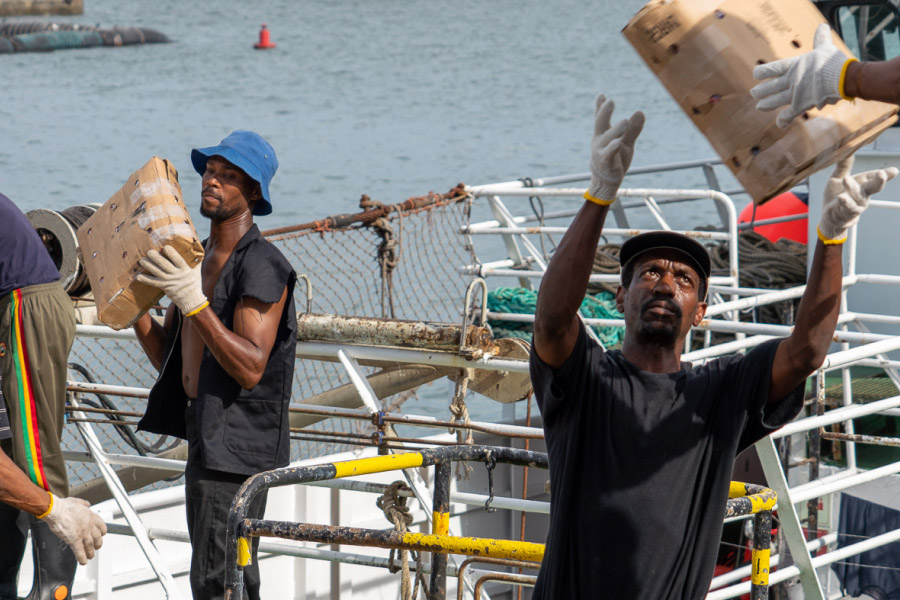SADC Secretariat and partners host the 15th Meeting of the Regional Technical Team (RTT) on Regional Fisheries Monitoring Control and Surveillance Coordination Centre (MCSCC)
December 13 2023
Enhancing Effective Fisheries Monitoring and Surveillance in the SADC Region to Combat Illegal Unreported and Unregulated (IUU) Fishing

The 15th Meeting of the Regional Technical Team (RTT) on Regional Fisheries Monitoring Control and Surveillance Coordination Centre (MCSCC) took place in Cape Town, South Africa, on December 4th, 2023. The event gathered key stakeholders and experts in the field to discuss and strategize on critical issues towards operationalization of the MCSCC based in Maputo, Mozambique.
The Meeting was attended by various SADC Member States viz. Angola, Botswana, Eswatini, Lesotho, Malawi, Mozambique, Namibia, Seychelles, South Africa, United Republic of Tanzania and Zambia. These Member States are the current founding Members and State Parties to the MCSCC Charter. Other participants included partners who are supporting the work of the MCSCC, namely, Benguela Current Commission (BCC), FishFORCE Academy base at Nelson Mandela University (NMU) in South Africa, Stop Illegal Fishing (SIF), TRAFFIC and the World Wide Fund for Nature (WWF).
The objective of this meeting was to review the progress and the implementation of the Roadmap for the Interim Project Management Unit (IPMU) on operationalization of the MCSCC which is already functional and it’s being hosted in Maputo, Mozambique, follow-up processes on the appointment of candidates for the Board of Directors of the MCSCC which was advertised in the www.sadcmcscc.org website. In addition, it intends to review the implementation of projects supporting MCSCC, guide the newly established SADC MCSCC Operational Task Force, engage in the inception of the MCSCC Oceans Vigilance project which aims to reduce and halt the IUU fishing activities in the SADC Region.
The 15th RTT meeting covered a wide range of topics that are essential for operationalization of the MCSCC, as well as improving regional capacities to address challenges, mainly IUU fishing and fisheries related crimes, share best practices, increase the sense of togetherness and cooperation, improve visibility and communications within Member States on the work of MCSCC and also with other stakeholders and explore innovative approaches to enhance the MCSCC’s role in regional fisheries governance. Participants had an opportunity to share they expectations as State Parties which entails a wide range of needs such as: Human capacity strengthening on a variety of areas in fisheries governance, training in risk assessments, effective monitoring and surveillance, developing standard operating procedures (SOPs), increased collaboration mainly in Joint Regional Patrols, introduction of new and more advanced MCS technologies, but one that stood out of them all was the monitoring of inland fisheries activities which is of extremely relevance for inland countries.
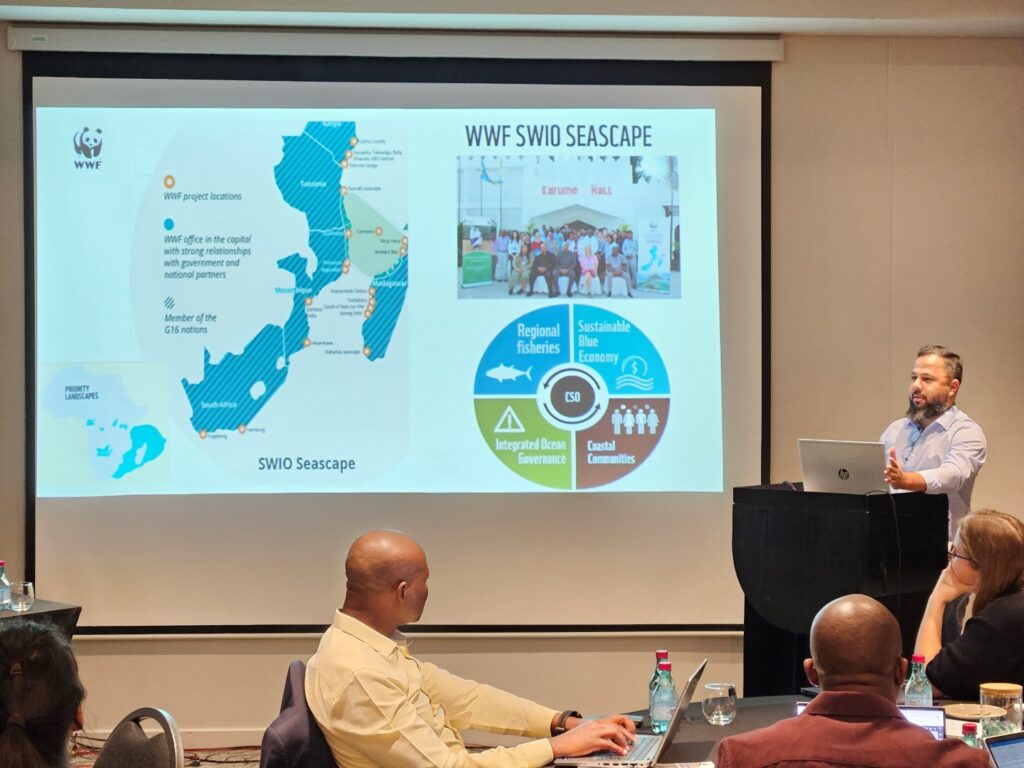
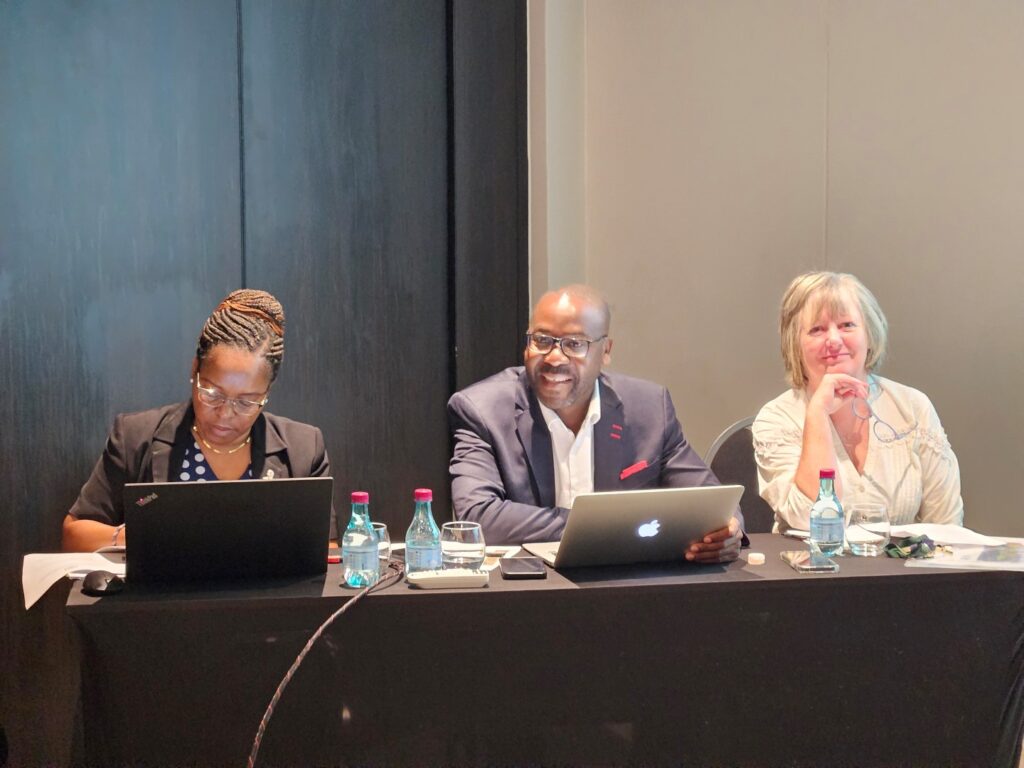
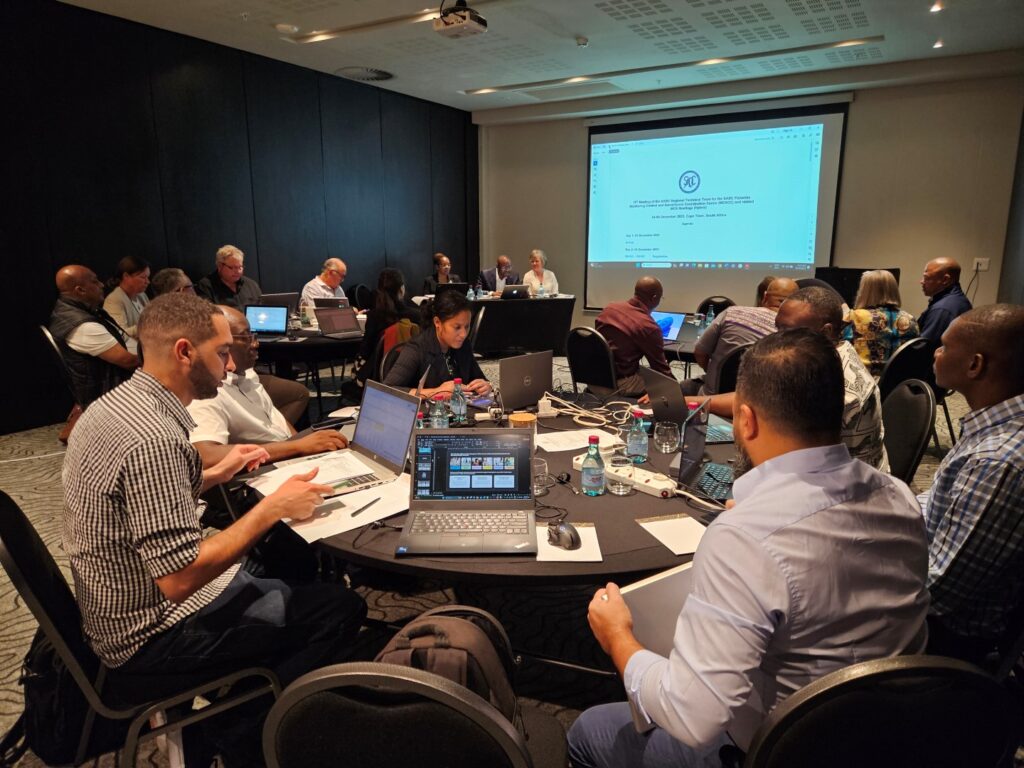
As the meeting concluded, participants expressed their gratitude for the enriching discussions and the opportunity to strengthen regional cooperation in fisheries management and governance through MCSCC. Key takeaways included the commitment to implementing shared policies and leveraging technological advancements for more effective monitoring and surveillance. The meeting concluded with a glimpse into future plans, emphasizing on finalization of processes towards operationalization of the MCSCC, ongoing collaboration, capacity building initiatives, and the continuous improvement of the capabilities through MCSCC.
Participants expressed optimism about the positive impact of these efforts on the sustainability of regional fisheries. Main take away messages shared by the participants:
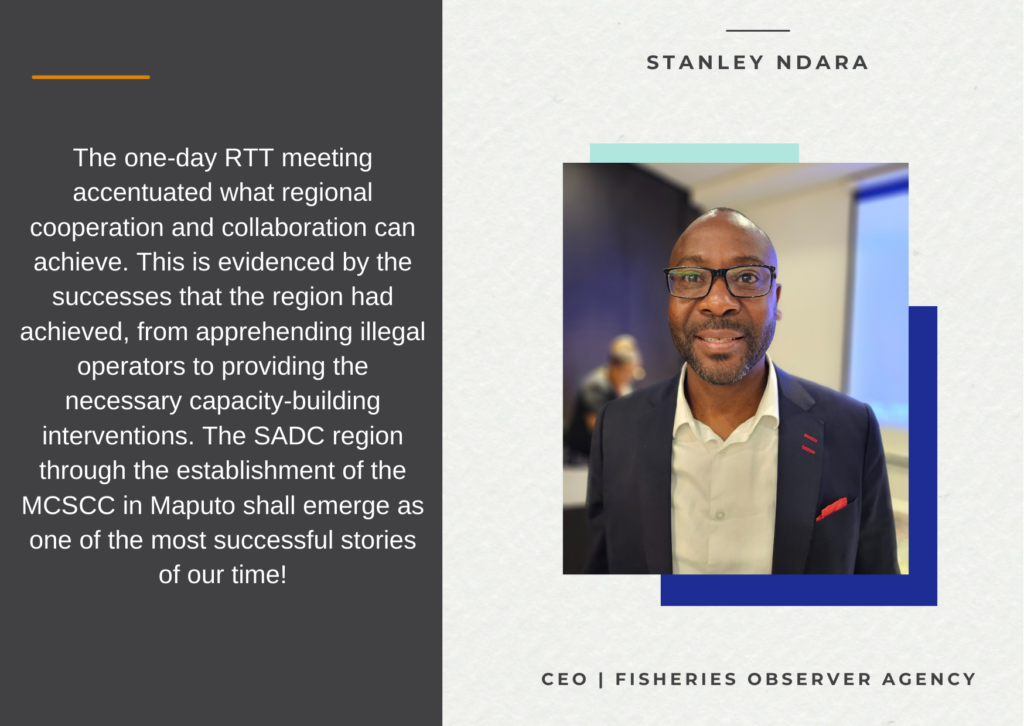
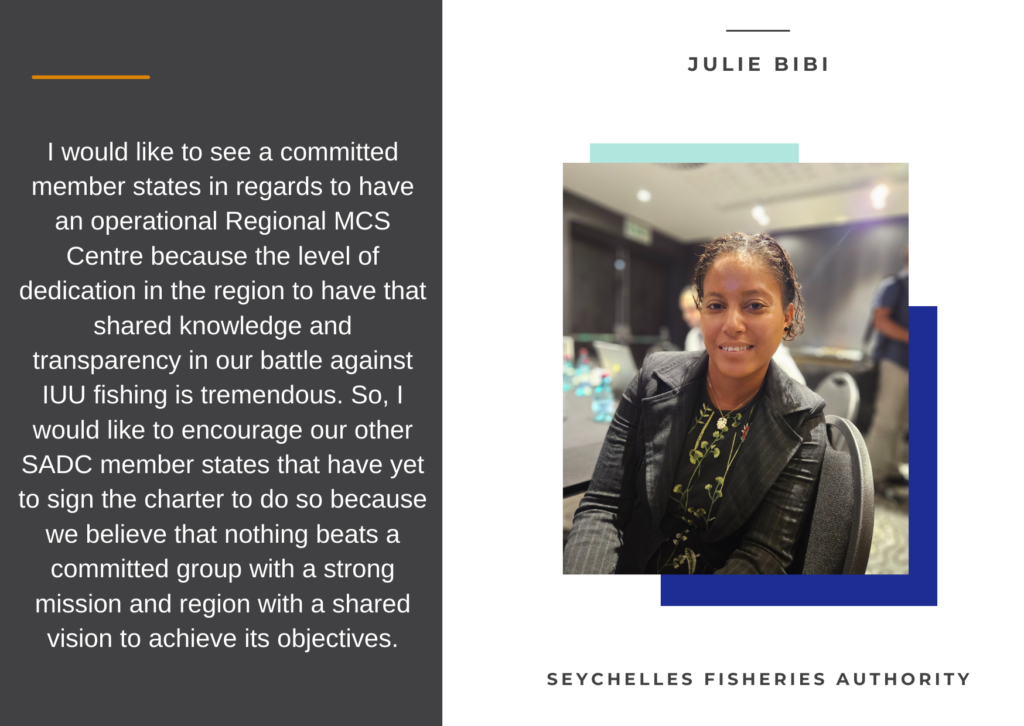
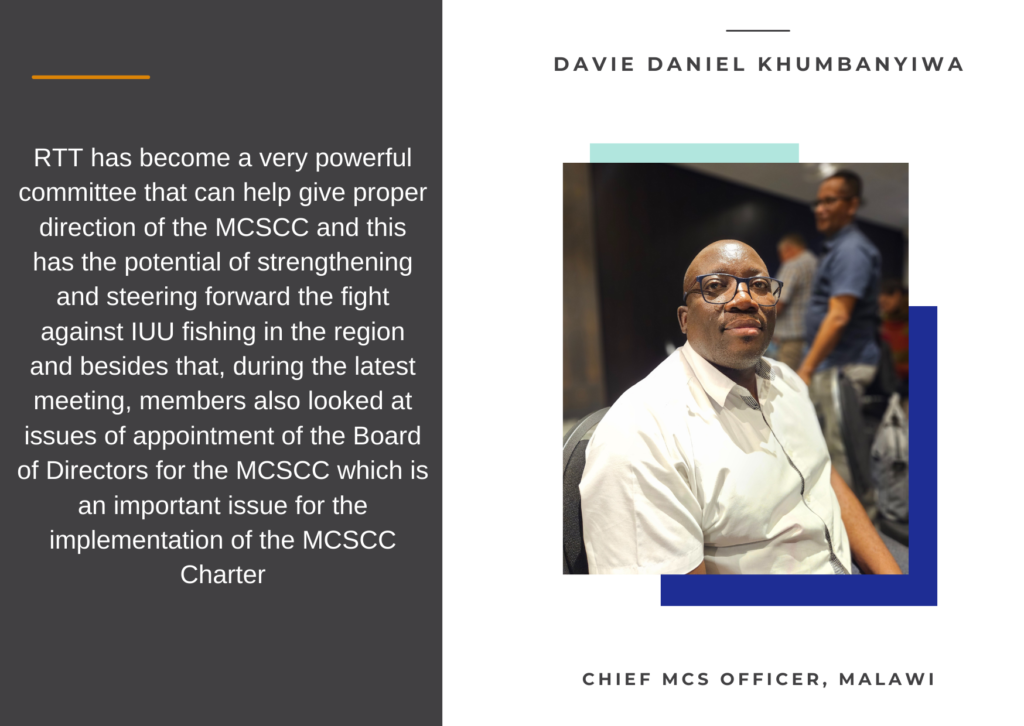
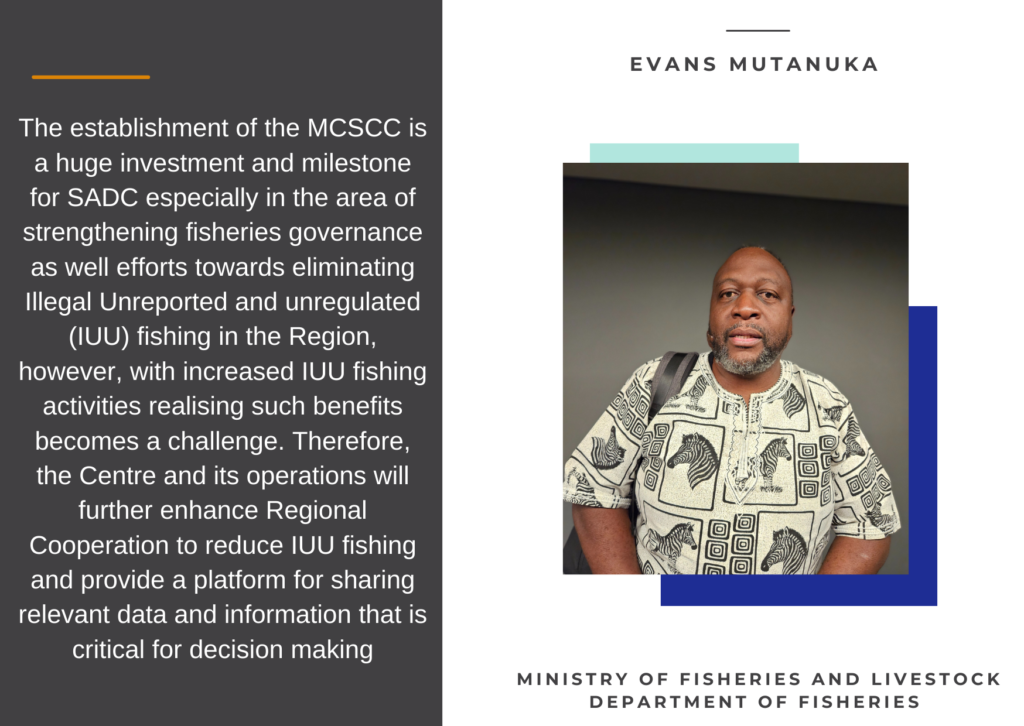
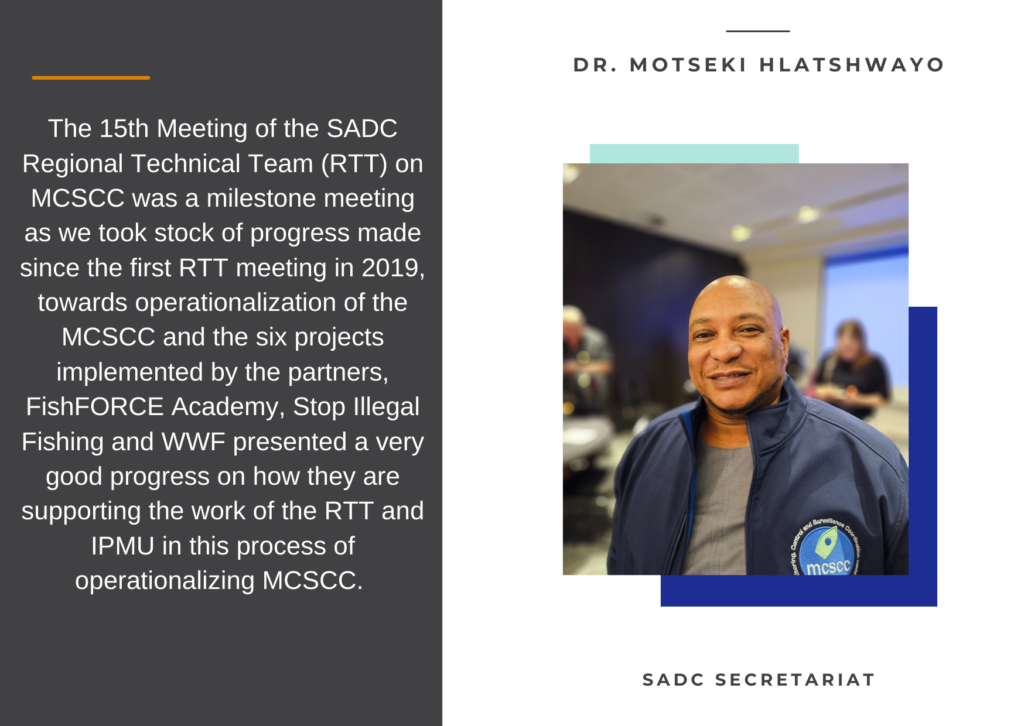
Follow the stories on our social media spaces and also follow the #tags #stopiuu #stopillegalfishing #mcscc
@SADC_News facebook.com/sadc.int

